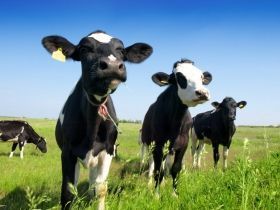
With their large buck teeth and wrinkled, hairless bodies, naked mole rats won’t be winning any awards for cutest rodent. But their long life span—they can live up to 30 years, the longest of any rodent—and remarkable resistance to age-related diseases, offer scientists key clues to the mysteries of aging and cancer.
>> Read the Full Article

Some calves are inherently optimistic or pessimistic, just as humans are, a new University of British Columbia study has found.
Recognizing these individual personality differences is important to ensure animals are treated well, says professor Marina von Keyserlingk, who led the research team from UBC’s animal welfare program in the faculty of land and food systems.
>> Read the Full Article

 ENN
Environmental News Network -- Know Your Environment
ENN
Environmental News Network -- Know Your Environment